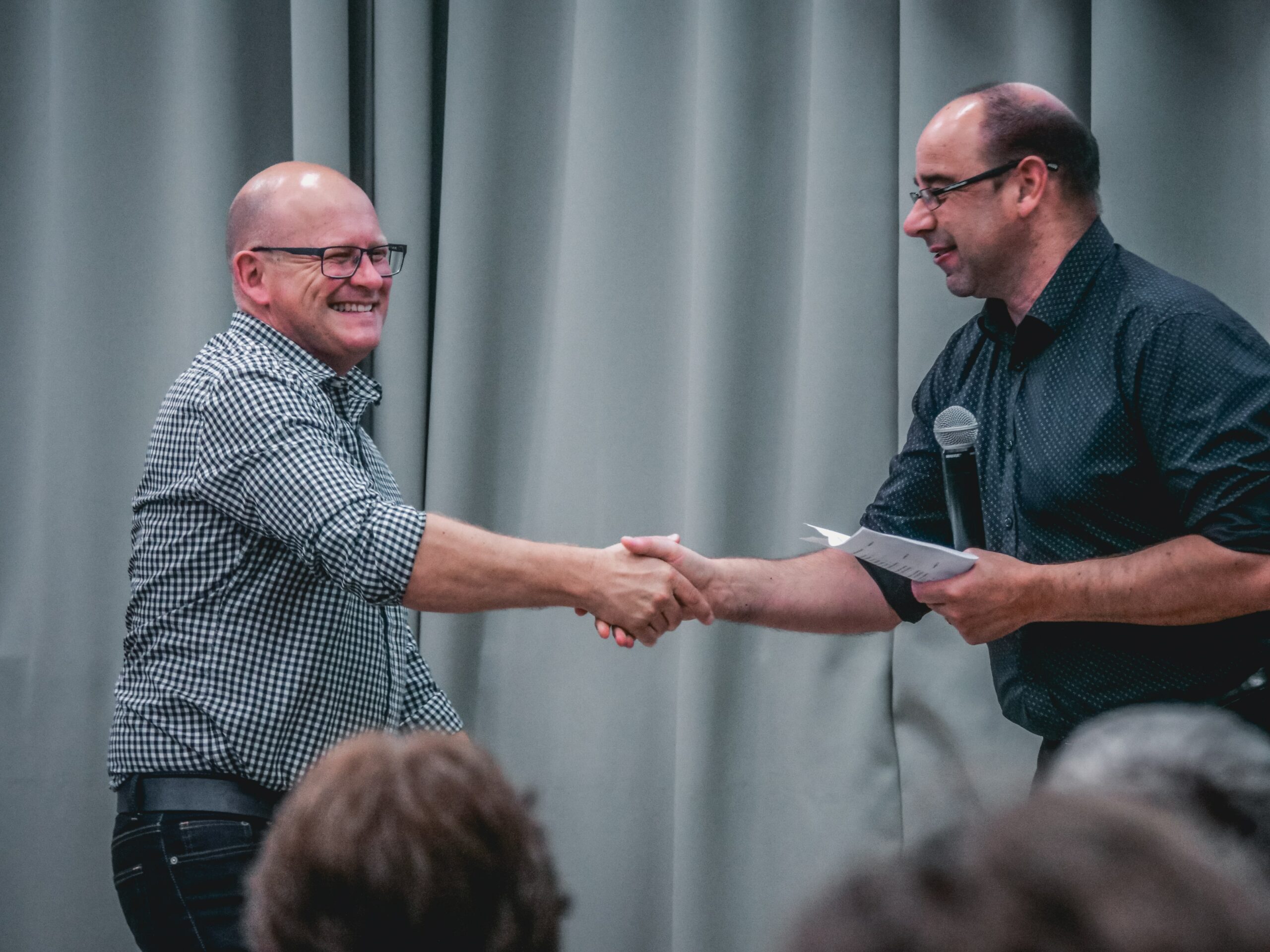We know from industry research and personal experience that despite all the attention on it, Customer Experience is either stagnating or not getting the results CEO’s desire. Some might say it is because of COVID, but I don’t think so.
Having managed over 3,500 people in contact centers in my previous career, I was sympathetic of organizations at the start of the pandemic. They had to adapt, quickly. However, that was a long time ago now. My sympathy faded, and disappointment replaced it.. Today, COVID is an excuse for organizations to deliver poor service.
I am also disappointed in the frequency of bad experiences I have had lately, despite the focus on Customer Experience.
Why?
One of my leadership and career philosophies is “None of us are as clever as all of us.” While I have my opinions, I do not have all the answers about why experiences are poor today. By understanding other people’s views, you can improve your thinking.

Enter, Alex Mead, Chief Customer Service Experience Officer. Mead has been extoling a number of controversial views on Customer Experience and the problems we face. I recommend reading some of Mead’s posts, even though he often disparages Customer Experience Influencers. Mead criticizes Influencers who have not held an operational role and are theoretical rather than practical in their approach to Customer Experience. However, that’s my take; read Mead’s posts and see what you think.
Like myself, Mead’s career is operational, starting as a customer service agent with a headset on for a water utility company where 90 percent of the calls were complaints. He was good at empathizing with customers and calming them down. However, he also realized that he couldn’t always help customers the way he should. Eventually, his diligence led to a promotion as a team leader, supervisor, and up from there. At this point in his career, Mead describes himself as a Customer Service Experience champion who thinks Customer Experience is not working.
One of Mead’s posts, in particular, caught my interest about how we should stop all Customer Experience accreditation now. Out of 197 people who voted in the poll, 65% of people agreed with this.
Now, I don’t agree, nor do I think the issue is as black and white as this. However, I like civil disagreements. We have much to learn from people that disagree with us. Without dispute, we live our lives in an echo chamber. So, while I can’t entirely agree with his views, I admire him for being controversial and not being afraid to state his opinion and enter a civil debate.
So, without further ado, Let’s hear what he has to say about Customer Experience Certification. I would encourage you to listen to the podcast above to hear precisely Mead’s words rather than my summary here. I am also sure Mead will comment on this article, so look for those, too.
Mead’s Argument: We Should Stop All Customer Experience Certification Now.
Mead begins his position by defining Customer Experience. Through the lens of the contact center space, his definition focuses on the Customer Service part of Customer Experience. Customers, Mead says, want information, and the organization they contact to own their issue and help them get the information. This definition means a customer-centered organization should have excellent contact centers, intuitive digital interactions, a brilliant social media presence, and an outstanding customer relationship management (CRM) system.
However, Mead says these tools are not enough. There is much more. As an example, the organization should also have:
- Empowered staff who can own customers’ issues
- Short call center queues
- Individual chats (as opposed to five simultaneous discussions per representative)
- Complete customer order and history information, even from third-party providers
Mead says Customer Experience accreditation doesn’t touch these areas. It doesn’t fix a broken call center or a poorly designed chat experience. It doesn’t connect your CRM with the point of sales to inform agents about the customers. Instead, Mead says it shows how to journey map, incorporate analytics, and voice-of-customer insight into your organization. Mead says accreditation in these tools does not address the real issues plaguing contact centers today.
Moreover, Mead says the same 25-56 influencers peddle accreditation courses on LinkedIn. Of these, he notices a lack of operational experience on the ground in a contact center. Mead compares selling customer experience without ever having worked with customers to selling snake oil and describes their accreditation as meaningless in the real world of Customer Experience.
My Response: Mead makes some interesting points.
(I realize my reaction is less than perfect from a debate standpoint.)
In my view, we do need to train people on the concept of Customer Experience and what it is at a top level as too many people don’t get it. So, I disagree with part of his argument. However, I agree that the training should have practical applications in the company and many accreditations do not provide this. So, in other words, strategy and thought process are great, but then you need to do something.
Mead also says the so-called Customer Experience experts haven’t ever worked in a customer-facing position. As a result, they know high-level theories but don’t have practical experience to put the ideas into practice in the real world.
I have sympathy with this view, but it is up to individuals to decide to whom they listen. This area is also a differentiator for some influencers. For example, I called our company Beyond Philosophy to make the same point. You need to understand the philosophy and have a strategy, but then, like Mead, I say you need to DO something. Hence, the name is Beyond Philosophy because we go beyond philosophy and do something.
(Still not much of a debate, but bear with me.)
Mead says Customer Experience accreditation earned in two days doesn’t qualify one to work in Customer Experience. He says it should be like a Learner’s Permit for driving and it means accredited Customer Experience individuals are now ready to work in a customer-facing role to get practical experience that will bridge the gaps of their theoretical training.
I agree.
(Maybe I should have watched a how-to video on debates.)
So, we agree that we need to be training people at different levels. However, he thinks all training should be practical and not theoretical and I don’t agree with that. I say understanding the theory is the first part, and getting practical is next.
Mead’s Second Argument: The people in charge of Customer Experience do not know what customers want.
Mead says Customer Experience experts push Customer Service Experience vehicles that customers don’t want. Customers do not want to chat or use voice recognition technology to get their answers. Instead, customers want to contact a company and get answers without hassle.
Instead of pushing these unwanted tools, Mead says Customer Experience people should challenge the old ways of doing things. Leaders in the movement should have methods for an organization to think differently about interacting with customers. In other words, he thinks what’s available today as far as training is terrible and useless. He implores the Customer Experience leaders to make sweeping changes to training initiatives that emphasize practical applications instead of high-minded theories.
Also, executive boards Mead works with have no idea of the reality of their customer journey. For example, they hear that the Net Promoter Score® (NPS) is up to four points from last year, as reported by the chief marketing officer, so they think everything in the experience is fine, improving even. However, Mead says NPS doesn’t give an accurate view of what’s happening in the experience because it only captures the data from customers that purchased. It doesn’t capture all the ones that didn’t (or the reasons why they didn’t). So, these executive boards live in a little world where they don’t know how bad it is.
In addition, Mead finds that executive boards sometimes don’t see the point of improving the experience. They say since the industry has some inherent experience lows shared by all the players, it’s not worth the investment. Moreover, Mead’s more significant frustration is that later the same board will decide to spend more money on lousy technology and poor methodologies than if they had improved Customer Experience properly in the first place. Instead of starting with a clear Customer Experience vision and working back from there, they add technology to make up for its lack.
Mead also wishes companies would task someone with oversight into the experience. Few companies have a Chief Customer Officer. Instead, firms rebrand marketing people. Marketing people don’t know the right approach to creating a customer-centered experience. They wouldn’t begin with a digital contact center experience centered around customers. They don’t see how hooking up a CRM to a resource management platform could help agents in customer interactions. These rebranded marketing people dressed as Chief Customer Officers don’t know that measuring agent effectiveness based on calls or chats per hour creates an ineffective environment for customers.
On the other hand, a Chief Customer Officer would see a customer-centered Customer Service Experiences need to measure success in contact centers on owning the customer’s issue. They would empower the team to do what it takes to put things right for the customer.
Unfortunately, Mead says, nobody thinks that way today.
Colin’s Rebuttal: Training and Accreditation are still good, but they should combine learning.
I disagree that we should throw out everything and start over. We should still have accreditation, but it should be taught in levels. I believe in Market forces. Loads of people are taking this training so there is a clearly a demand for it. It should begin with training at a top level of what Customer Experience is. People should understand that customers are not rational but instead have emotions, and these feelings influence their behavior in experiences.

However, once you have conveyed these high-level ideas, the training should then get into the details of how you can fix an experience to evoke the emotions that get customers to buy from you.
I do agree that the people who train should use these concepts in the field with the training team. For example, when I was at British Telecom (BT) running the call center, I would train my team in high-level concepts. Then, we would all implement activities to evoke these emotions in the call center at a detailed practical level.
Mead’s rebuttal: Training should be practically based, not theoretical.
Now, it’s Mead’s turn to agree with me (mostly).
So, he likes the practical aspect of my argument. However, he would throw out the theoretical and replace it with educating the team on what a Customer Experience is for their business. He would include teaching techniques for assessing the opportunity for the Customer Experience. For example, his training would consist of using work-along exercises (aka, ride-along appointments) in different departments to surmise how what happens in day-to-day operations causes complaints that come into the contact center.
Then, he would add an advanced course that teaches people how to present what they find in terms that matter to the stakeholders. So, for example, he would teach people how to present to the executive board in terms that get their attention, like the estimated missed revenue that occurs with a 25% drop-off rate at the contact center.
Mead thinks we should abolish certification as it is and replace it with his version of practical application. He would also quit pretending that a two-day training on the high-minded concepts of Customer Experience from someone that hasn’t ever worked with customers constitutes a qualification to work in Customer Experience.
My counterargument boils down to the present training is OK for top-level concepts, supported by the fact that so many people take it. However, it is only the beginning. Further on-the-job training is critical to success. Overall, there seems to be a lack of practical training.
Again, I encourage you to listen to the podcast to hear Mead’s words rather than my summary.
If you haven’t read Mead’s posts, you should because they are interesting. Of course, I can’t entirely agree with everything he says, but that is the essence of discussion and learning. By hearing each other’s arguments, it can create more agreement than you might at first think is possible. It is here that we find progress.

So, should we stop all certification now? No, but we should ensure that we address the practicality of it. So on this level, Mead and I agree.
There you have it. No promotions, no gimmicks, just good information.
Think reading is for chumps? Try my podcast, The Intuitive Customer instead. We explore the many reasons why customers do what they do—and what you should do about it. Subscribe today right here.


